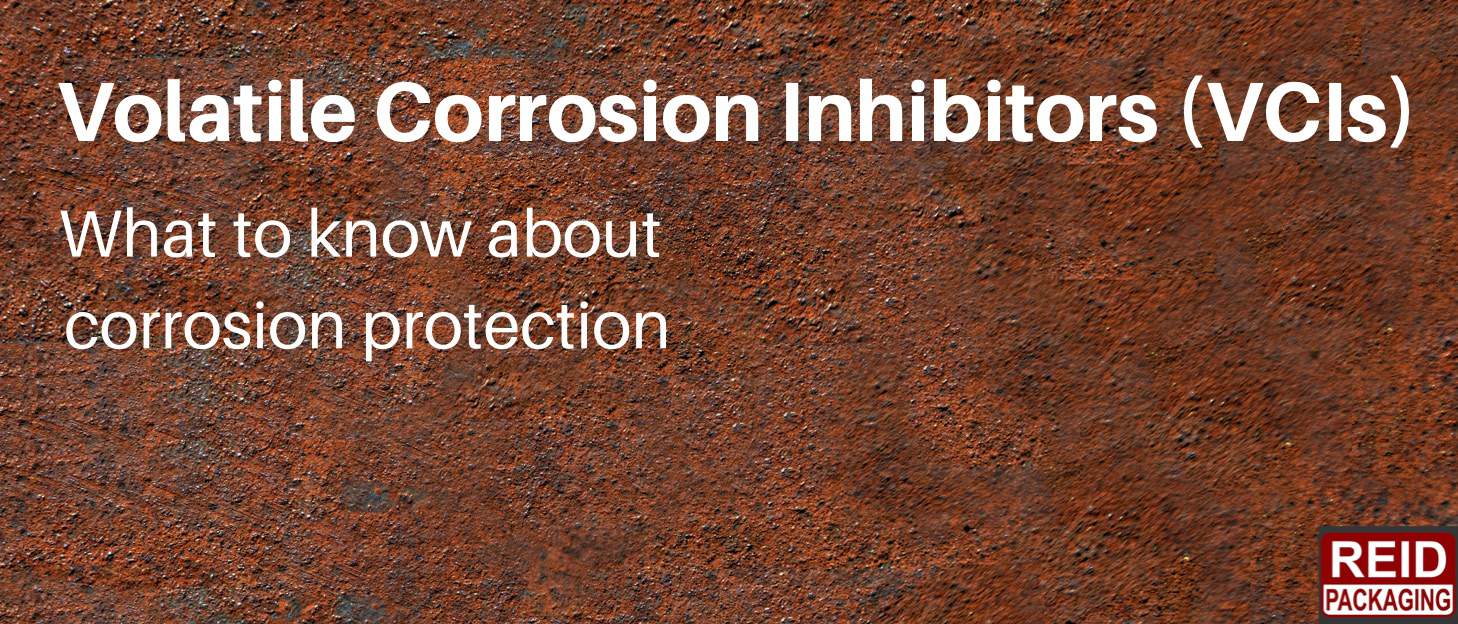Volatile Corrosion Inhibitors (VCIs) & The Crucial Importance of Corrosion Protection
A recent study by the National Association of Corrosion Engineers (NACE) estimated that the global cost of corrosion amounts to $US 2.5 trillion, or about 3.4% of the global gross domestic product. That’s a staggering loss and points to the fact that manufacturers, shippers and others need to do more to prevent corrosion before it claims a product. As international packaging manufacturers, we know corrosion is a hugely important factor in any packaging, shipping and storing application.
To address this, we’ve dedicated a number of articles here to corrosion prevention measures, including an article about container rain, and another on the use of vapor barrier materials. In this article, we will discuss the use of VCIs to prevent corrosion, and talk about their use versus other techniques.
What Are VCIs?
Volatile Corrosion Inhibitors or VCIs are chemical compounds released inside sealed containers and are designed to bind to metal surfaces within the containers to prevent oxygen, moisture and chlorides from causing corrosion. These compounds provide a molecular coat so oxygen, moisture and chlorides can’t touch the metal. Inside the sealed container, they provide a layer of invisible protection to all the metal surfaces of the product.
Unlike vapor barriers, VCIs do not remove oxygen and moisture from the air inside the container. Instead, they provide an invisible layer of protection – a molecular coating – directly on the surface of the metal.
The PROs and CONs to VCIs
VCIs are an elegant solution to corrosion problems because they can simply be added to a packaging material and can invisibly prevent corrosion. With the purchase of VCI-equipped bags or wrapping materials you can create corrosion-preventing packaging quickly and easily, reducing some labor costs and speeding packaging processes.
However, VCIs are best when the product being protected is relatively small and can fit inside of pre-made bags. As well, VCIs do not provide protection beyond three years, at the maximum (many experts advise that packaging material should be changed out far more often than that), and VCI protection is only as strong as the bag that provides it: one puncture and the protection is no longer effective. VCIs cannot be monitored, so if there is an unnoticed or invisible puncture, you will only know after the corrosion has happened. Finally, it is important to note that VCIs only provide one type of protection: against corrosion. Moisture build-up can cause other types of problems that VCIs aren’t equipped to prevent: mold and mildew, discoloration, and electrical problems. If your product could be negatively affected not just by corrosion, but by moisture in general, then you’ll need to use something other than just VCIs to protect it.
In contrast, more traditional vapor barrier materials and desiccants protect products by removing oxygen and moisture altogether, and, importantly, they can be monitored with humidity readers to see if the package is still adequately protected. They also tend to be more durable, using thicker material, and are estimated to provide lasting protection up to twenty years, although many experts advise against such prolonged storage without updating the packaging.
Shorter Trips and Smaller Products
In conclusion, VCIs are useful for relatively small products that need to make relatively short trips or be stored for relatively short periods. In these instances, VCIs are fast, simple and effective, and provide excellent protection against the damaging effects of corrosion.
Corrosion Protection and Reid Packaging
At Reid Packaging, we’ve been preventing corrosion damage on products in shipment since 1982. We can discuss the best corrosion-prevention strategy for your product and its transport journey, whether its heavy-duty vapor barrier bags with desiccants, or VCIs, or another corrosion prevention technique. Give us a call and we’ll be happy to find a custom solution for your product.

